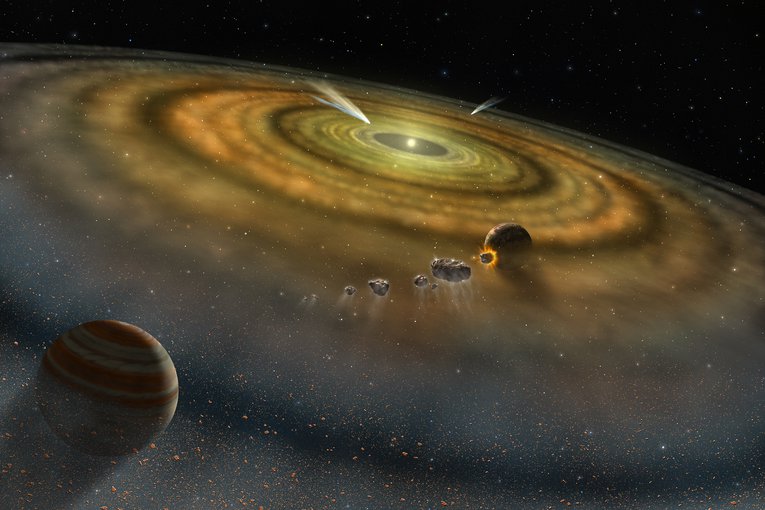
April 15, 2019
Research Highlight
Phosphorus and the Birth of the Solar System

Artist's conception of the dust and gas surrounding a newly formed planetary system.Image credit: NASA.
A new study provides insight into the behaviour of phosphorus in the early Solar nebula. Phosphorus is a minor element in the Universe, but it has important implications for life as we know it. This element is a component of many key materials used in the formation of terrestrial planets, and could be linked to habitability. Phosphorus is also a key component of molecules essential to life, including DNA.
The recent study shows that metal serves as a sink for phosphorus, forming solid material containing phosphides (and oxidizing to phosphates). This process would have had implications in the early formation stages of our solar system. The study proposes that phosphorus in the Solar nebula would have quickly reacted with iron-nickel, and then migrated into the inner Solar System. This inward migration would have cleared volatile phosphorus from large portions of the Solar System as the element reacted with metal and formed solid materials.
The study, “Phosphorus volatility in the early solar nebula,” was published in the journal Icarus. The work was performed at the NSF/NASA Center for Chemical Evolution (CCE) at the Georgia Institute of Technology in Atlanta, Georgia. The CCE is a collaborative program supported by the National Science Foundation (NSF) and the NASA Astrobiology Program.